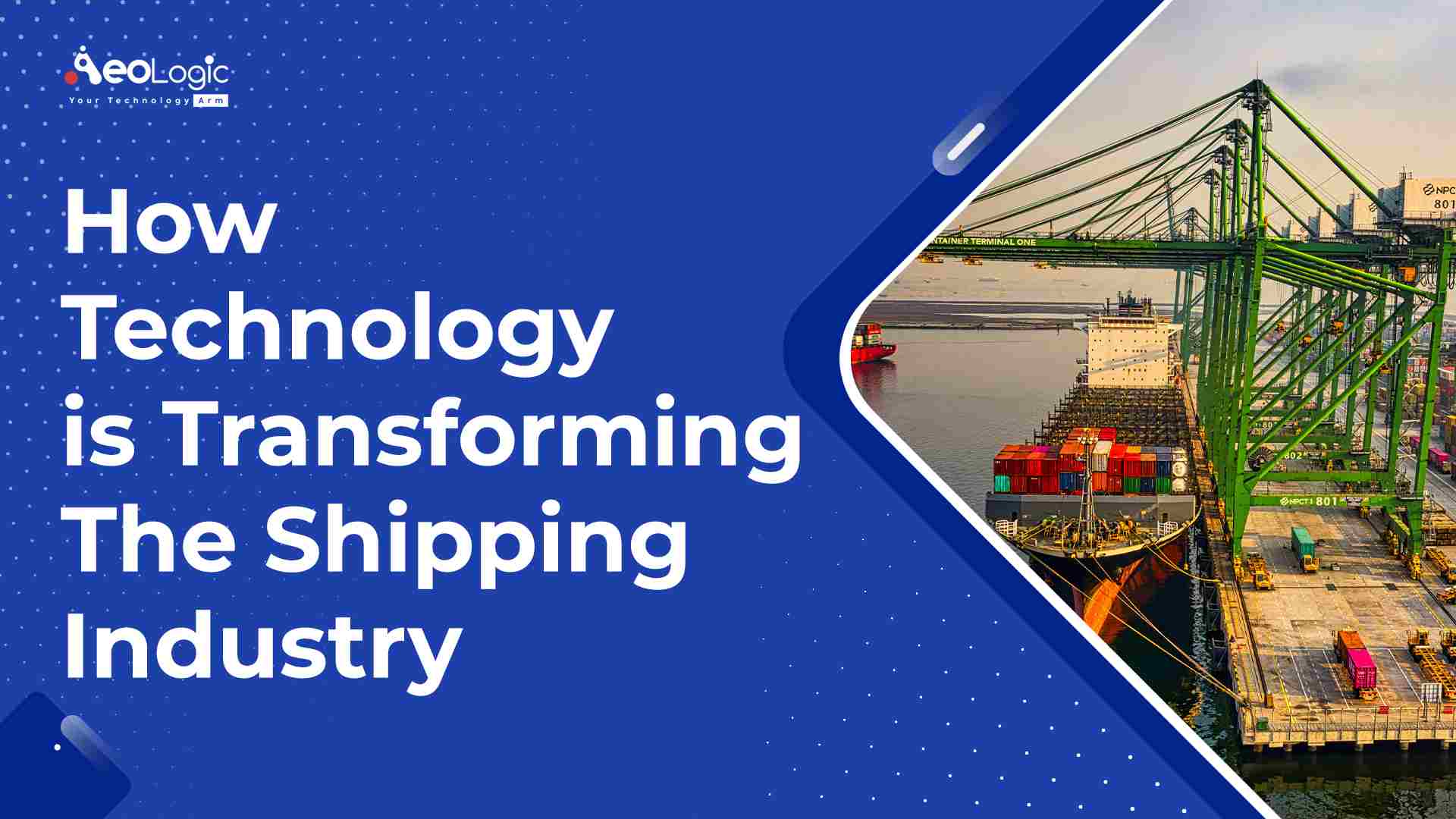The digital world has connected customers in more ways than ever before. Companies have started using a decentralized platform that harnesses autonomous systems enabling customers to receive personalized rail solutions to enhance the travel experience.
It is a fact that 90 percent of the world’s goods come and go by ships and when we talk about technology in the shipping industry mostly we remember the age-old industry which was very hesitant to harness new technologies.
It is now quite noticeable that the shipping industry is undergoing a technological revolution. In this blog, you will learn about the latest technologies that are being tested and used extensively.
Before we dive into the latest technologies used in shipping let’s get our basics straight on the shipping industry.
Shipping Industry
Shipping is a massive industry, and it would be impossible to list all of the domains involved in shipping today. In general, shipping involves ports, ships, systems, processes, and allied services. All these are getting a technological facelift. The industry’s efforts to digitize are also being aided by startups that are creating technical solutions, especially for it.
Technologies like robotics, artificial intelligence (AI), machine learning (ML), internet of things (IoT), blockchain, drones, and augmented reality are being harnessed to create a safer, efficient, and more productive environment to carry out export and import trade.
Technologies
1. Robotics
Robotics has infiltrated every industry in some way or the other. Many technology companies are now building robots that can aid in ship management, safety, servicing, and inspection. Shipboard autonomous firefighting robots is one such technological innovation. Fires on ships are not only common, they cause huge damage and sometimes result in human life, environmental damage, and also a potential threat to precious cargo on board. Firefighting robots are designed to take charge in such situations.
A shipboard autonomous firefighting robot is such a robotic system that can mitigate and control fire on board. In coming years the world will see such robots installed and ready to control fire issues on cargo and passenger ships.
2. Blockchain
The next technology revolution in the shipping industry is blockchain technology. It’s no longer limited to bitcoins. Currently, the shipping industry is exploring the benefits of blockchain technology at large mainly to add efficient processes and integrate the supply chain from start to finish. The system based on blockchain technology will make it easy to transfer data and track cargo in real-time till it reaches the final destination.
Many allied services will use blockchain technology to provide services to the shipping industry. Cargo insurance is one such application.
3. Augmented reality
Augmented reality is definitely not a mainstream technology adoption in the shipping industry right now, but it has the potential to add enormous value to the shipping industry. It can be used to optimize cargo planning, maintenance, inspection, navigation, and collaboration solutions.
4. Fuel cells
The shipping industry is becoming increasingly visible on the political agenda as environmental awareness grows. Fuel cells or FC systems are installed onboard for energy conversion and efficiency. FC meets specific requirements for marine applications such as cleanliness, quietness, small size, modularity, and efficiency. The maritime industry is aware of the benefits of FCs for future ship designs. In the coming future, the world will see fuel cells implemented on merchant ships.
Smart Shipping
In general, if we look around our homes we’ll find smart things, smartphones, smartwatches, smart homes, smart gadgets, and smart cities. Ships, which are becoming smart, are not left behind in this transformation. Ships are set to become smart, tech-savvy, and autonomous very soon. Automated ships will add a technological edge to the shipping industry by improving efficiency, productivity, and carrying capacity.
Conclusion
To sum up, the implementation of technologies is transforming the shipping industry rapidly and boosting effectiveness and efficiency at a very high level. Smart ships will be remotely managed, secure, reliable, and efficient. There will be no need to worry about accidents, ships running into shores, no more human errors, and no more pirates.

Manoj Kumar is a seasoned Digital Marketing Manager and passionate Tech Blogger with deep expertise in SEO, AI trends, and emerging digital technologies. He writes about innovative solutions that drive growth and transformation across industry.
Featured on – YOURSTORY | TECHSLING | ELEARNINGINDUSTRY | DATASCIENCECENTRAL | TIMESOFINDIA | MEDIUM | DATAFLOQ









